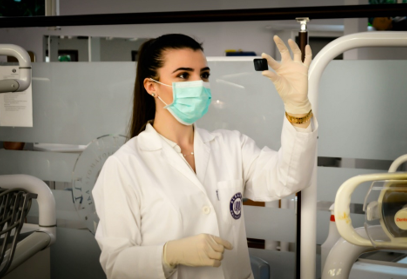Why Cyber Protection Matters for Modern Medical Systems
- Updated on: Nov 8, 2025
- 3 min Read
- Published on Nov 8, 2025

Why Cyber Protection Matters for Modern Medical Systems
In today’s healthcare landscape, digital transformation is rapidly reshaping how care is delivered, data is managed, and services are accessed. Hospitals, clinics, and healthcare providers rely heavily on interconnected systems, electronic records, remote monitoring tools, and smart medical devices. While this progress unlocks efficiency and better patient outcomes, it also introduces new vulnerabilities. Cyber protection has become an essential priority for modern medical systems to ensure patient safety, data integrity, and operational resilience.
The Rise of Digital Dependency in Healthcare
Medical environments now depend on technology for nearly every aspect of patient care, from scheduling and diagnostics to treatment plans and long-term health monitoring. Electronic health records, telehealth platforms, prescription management systems, and connected devices have replaced manual processes. These advancements reduce human error, speed up clinical decisions, and enhance collaboration between healthcare professionals.
However, as systems expand and become more integrated, the risk of cyber incidents grows. One unauthorized entry or system failure can cause widespread disruption, compromising both medical operations and patient wellbeing. This increasing reliance on technology makes robust cybersecurity a non-negotiable component of modern healthcare.
Protecting Patient Data and Trust
Patient data is among the most sensitive information stored anywhere. Medical histories, treatments, insurance details, and personal identifiers are all prime targets for cybercriminals. A breach doesn’t just expose information, but can lead to identity theft, financial loss, emotional distress, and long-term privacy issues for patients.
Trust is the foundation of healthcare. If individuals feel their information is unsafe, they may hold back critical details or avoid seeking care altogether. By enforcing strong cyber protection, healthcare organizations maintain patient confidence, safeguard confidentiality, and honor their ethical duty to protect those they serve.
The Impact of Cyber Disruptions on Medical Care
Cyber incidents in healthcare do not simply affect computers; they can directly endanger human lives. If digital systems fail, medical teams may lose access to vital information or be forced to revert to slower manual processes. Patient monitoring devices could malfunction, lab results may be delayed, and treatment plans disrupted.
Cyberattacks can also shut down entire facilities, forcing appointment cancellations and delaying surgeries or critical care. In high-pressure environments such as emergency rooms or intensive care units, every second matters. Cyber protection ensures continuity of services, supporting consistent, effective, and safe medical care.
Safeguarding Medical Devices and Smart Technologies
Modern medical systems now include interconnected devices such as insulin pumps, heart monitors, imaging equipment, and wearable health trackers. These technologies provide real-time insights, enabling more personalized and proactive healthcare. Yet each connected device can also serve as an entry point for cyber threats if not properly secured.
A strong cybersecurity strategy must account for the unique risks of medical devices. Regular updates, encryption, testing, and monitoring are vital to keep these valuable tools safe from tampering or external control. Ensuring device security helps maintain functional reliability and protects patients from potential harm.
Preparing for the Future of Intelligent Healthcare
As healthcare continues to evolve, innovative technologies like machine learning and data-driven diagnostics will play an even greater role. These solutions support quicker decisions, predictive care, reduced workloads for clinicians, and improved accuracy. With this progress comes a greater need for secure frameworks that protect both innovation and those benefiting from it.
Many organizations are now exploring AI Security to safeguard the integration of advanced intelligent systems. Implementing protective solutions ensures that new tools can be used confidently without exposing vulnerabilities or compromising patient privacy.
Building a Culture of Cyber Awareness
While technology forms the backbone of cyber protection, human awareness is equally important. Healthcare professionals at all levels, from clinicians to administrative staff, must understand how their actions can impact system safety. Training, clear policies, and proactive cybersecurity practices help create a secure environment where everyone plays a part.
Embedding cyber awareness within daily routines helps reduce errors such as mishandling data, falling for phishing scams, or using weak passwords. A well-informed workforce can act as a powerful defense against cyber threats.
Final Thoughts
Cyber protection is essential to the sustainability and integrity of modern medical systems. By prioritizing security across digital platforms, devices, and data processes, healthcare organizations can continue to deliver safe and reliable patient care in an increasingly connected world.












